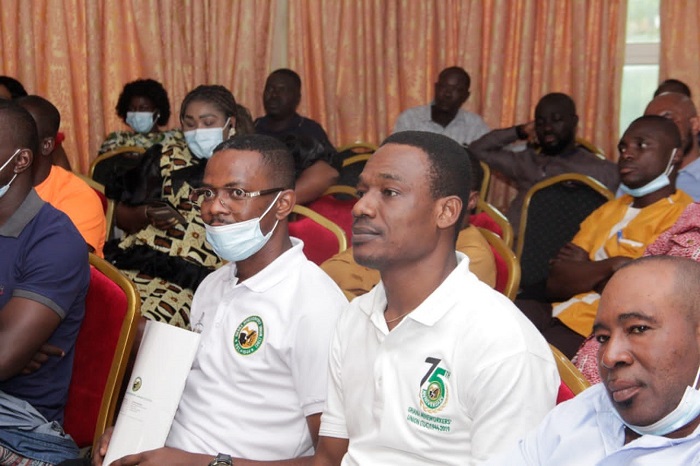“Given the unprecedented surge in gold price and the colossal gains most mining companies made last year, and what they are projecting to make this year, we expect that mining companies would take strategic advantage of the price boom and by extension increased margins from last year and this year, to invest in modern infrastructure and expand existing ones, increase production, intensify exploration activities,” he said the at the Union’s National Executive Council Meeting held at Abirem in the Eastern Region.
That, he said, the Ghana Mine Workers’ Union believed was a substantial step towards the creation of decent and sustainable jobs and a strategic approach to sustaining the industry in the long run.
He said unlike other sectors which had been heavily hit since the outbreak of the pandemic, the Ghanaian mining industry so far stood out as the utmost beneficiary of the global health crisis.
Mr Gbana said gold price since the beginning of the year had maintained relative stability at a little over $1800 per ounce.
“Indeed, the World Gold Council has posited that “Gold has been on a generally positive trend for the past few years”. The onset of the global COVID-19 pandemic has made gold’s relevance as a hedge even more apparent and accelerated its price performance,” the General Secretary of GWMU, said.
Mr Gbana said another issue of grave concern was the gradual decline in the decent work gains achieved over the years, in pursuit of super normal profit that continued to undermine the working conditions of mining workers.
He said a study conducted by the Ghana Mineworkers’ Union revealed that for every increase in non-standard forms of employment, there was a corresponding decrease in standard employment or permanent employment in the sector.
“Without a doubt, this trend is fast undermining the decent work agenda and slipping our members into working poverty and ought to be checked without any further delay,” he said.
The General Secretary of GMWU said even though multinational mining conglomerates operating in the country had signed onto international conventions and protocols pledging to respect and promote workers’ rights, they were doing the opposite.
He said the some loopholes in the Labour Act 2003, (Act 651) which granted exemptions to employers from paying redundancy and severance to workers engaged in contract of a specified duration or for specific work, were contributing to the precarious work situation for mining sector workers.
Mr Gbana observed that the resort to contract mining by mining companies was worsening the working conditions of mine sector workers and called an end to such practice.
The National Chairman of GMWU, Mensah KwarkoGyakari, in his remarks, called to an end the current practice in which some chiefs had turned themselves into recruitment agencies for mining companies found in their communities.
 info@businessghana.com
info@businessghana.com



















